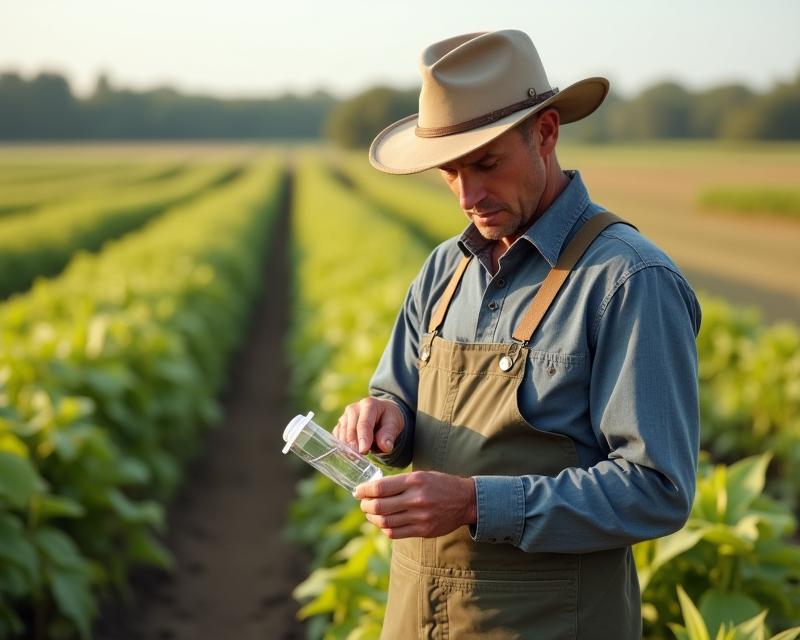Water Woes: Risks of Contaminated Water in Farming
Publish in Agriculture el 23/07/2025 17:01
Water Woes: Risks of Contaminated Water in Farming
Hello farmers, gardeners, and ranchers! We all know water is essential for a thriving farm. But what happens when the water we're using isn't as clean as we think? Using contaminated water can have serious, long-term consequences for your land and your yields. Let's dive into the risks and what you can do about it.

Soil Degradation: A Silent Threat
One of the most significant impacts of using contaminated water is soil degradation. This isn't something that happens overnight; it's a slow, creeping problem. Contaminants like high levels of salts, heavy metals (like lead or arsenic), or excessive minerals can drastically alter your soil's structure. Over time, this can lead to soil compaction, making it difficult for roots to penetrate and access nutrients and water. Think of it like trying to grow plants in concrete – it just won't work!
Furthermore, certain contaminants can disrupt the delicate balance of soil microorganisms. These tiny organisms are vital for nutrient cycling – breaking down organic matter and making nutrients available to your plants. When their populations are negatively affected, your soil's fertility plummets. You might see reduced crop yields, increased need for fertilizers, and a general decline in soil health. This can lead to a vicious cycle where you need more and more inputs just to maintain the same level of production.
Beyond Soil: Other Concerns
The problems don't stop with the soil. Contaminated water can also affect your crops directly. Certain pollutants can be absorbed by plants, making them unsafe for consumption or reducing their market value. For livestock, contaminated water can lead to health problems, impacting their productivity and increasing veterinary costs. It's a ripple effect that can impact every aspect of your farm operation.
What Can You Do?
Protecting your farm from contaminated water requires proactive measures. Regularly test your water source for contaminants. Consider implementing water filtration systems to remove pollutants. Explore alternative water sources like rainwater harvesting or well water testing. And most importantly, be mindful of potential sources of contamination in your area, such as agricultural runoff, industrial discharge, or improper waste disposal. Investing in water quality monitoring and management is an investment in the long-term health and sustainability of your farm. A healthy farm starts with healthy water!
- Regular Water Testing
- Implement Filtration Systems
- Explore Alternative Water Sources
- Be Aware of Potential Contamination Sources





